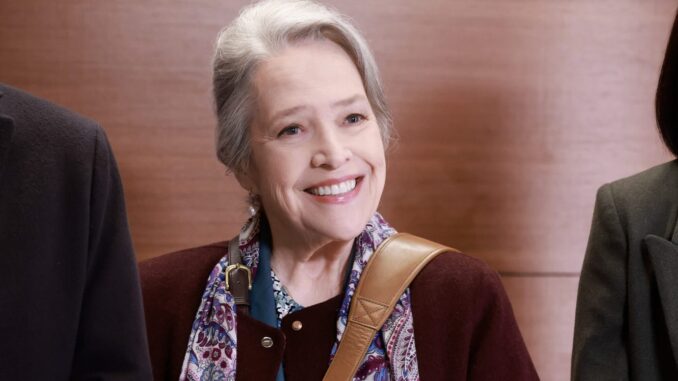
The Weight of Words: Kathy Bates and the Battle Against Body Shaming
Kathy Bates, a powerhouse of talent and a screen presence that commands attention, has never shied away from difficult roles. From the chilling Annie Wilkes in "Misery" to the endearing Bobbi Jewel in "Richard Jewell," she embodies a range and depth that few actors can match. Yet, even a talent as luminous as Bates has not been immune to the harsh glare of public scrutiny, particularly when it comes to her body. Her journey with weight loss has been punctuated not only by personal triumphs but also by the sting of criticism, illustrating a deeply embedded societal obsession with body image and its impact on even the most accomplished individuals.
Bates's weight loss, a journey undertaken for health reasons after a battle with ovarian cancer and lymphedema, has been heralded by some as inspirational. Stories abound of fans praising her dedication and attributing their own health journeys to her example. However, this narrative often clashes with a darker undercurrent: the relentless judgment and unsolicited opinions offered under the guise of concern. The very act of commenting on someone's physical transformation, regardless of intention, perpetuates the idea that a person's worth is intrinsically linked to their appearance.
One can imagine the layers of complexity behind Bates's responses to these comments. On one hand, there might be a desire to share her personal journey, to inspire others struggling with similar health challenges. Lymphedema, a painful and debilitating condition, often remains shrouded in silence, and Bates's openness could be seen as a form of advocacy. Yet, the flip side is the potential for exploitation and misrepresentation. A health-driven choice, a personal struggle, can be reduced to clickbait headlines and superficial analyses that focus solely on the number on a scale.
Furthermore, the criticism often carries an insidious undertone, a suggestion that her previous weight somehow diminished her talent or appeal. This speaks to the deeply ingrained fatphobia that permeates our culture. The implication is clear: success and admiration are often contingent upon conforming to a narrow definition of beauty, a standard that excludes a vast majority of the population. The sheer absurdity of this notion, when applied to an actress with Bates's remarkable resume, highlights the irrationality of this prejudice.
Her responses, whether direct or subtle, likely navigate a tightrope. A fiery rebuke might be misinterpreted as defensiveness, while silence could be perceived as tacit acceptance. Perhaps, in her silence or carefully chosen words, lies a silent rebellion, a refusal to validate the intrusive gaze. She may choose to focus on the work, the characters she brings to life, and the message she hopes to convey, implicitly shifting the narrative away from her physicality and towards her artistry.
In conclusion, Kathy Bates's experience with weight loss criticism serves as a microcosm of the larger societal struggle against body shaming and the relentless pressure to conform to unrealistic beauty standards. Her journey reminds us that even the most accomplished individuals are vulnerable to the invasive scrutiny of the public eye. The weight of words, often carelessly tossed about, can have a profound impact, perpetuating harmful stereotypes and undermining personal narratives. Ultimately, Bates's resilience and unwavering focus on her craft offer a powerful message: true value lies not in conforming to societal expectations, but in embracing one's authentic self and pursuing one's passion, regardless of the external noise. Her talent, her strength, and her refusal to be defined by her appearance are a testament to the power of self-acceptance and a beacon for those navigating the often-treacherous terrain of public perception.
